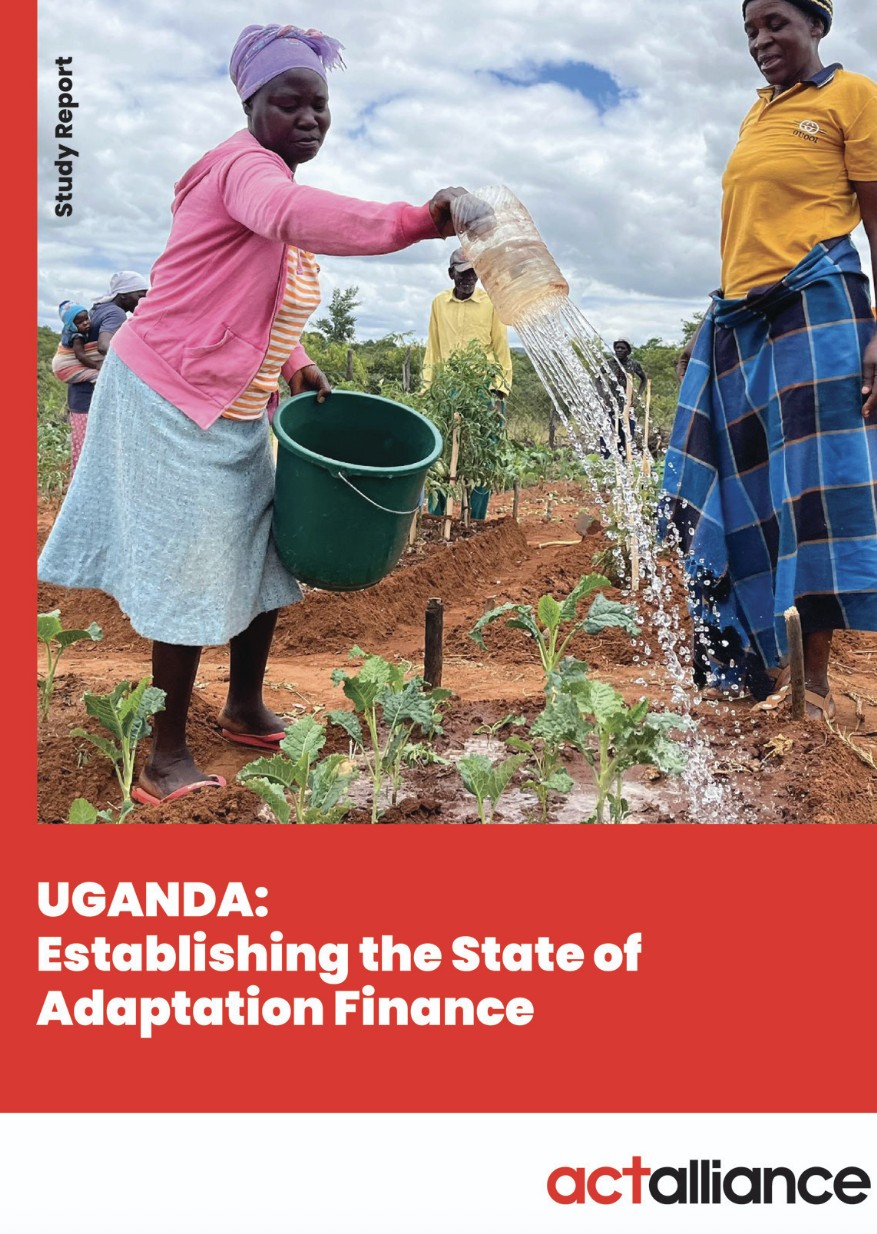The ACT Uganda Forum, in partnership with its national member Rural Action Community Based Organisation (RACOBAO), has released a new report examining the state of adaptation finance in Uganda. The report provides a comprehensive analysis of the country’s adaptation finance landscape, revealing financing gaps, opportunities for strategic alignment, and actionable insights to strengthen national climate resilience planning and implementation.
Key findings from the report include:
- Gender disparities in agriculture are undermining productivity: Although 77% of agricultural workers in Uganda are women, only 31% own land, contributing to a 13% productivity gap among women farmers. The report recommends that adaptation finance be structured to address these gender inequalities and enhance women’s adaptive capacity in agriculture.
- Uganda faces a significant adaptation finance gap: While the updated Nationally Determined Contributions (NDCs) estimate a five-year implementation cost of USD 28.1 billion, with USD 17 billion allocated to adaptation, Uganda has only committed to mobilising USD 4.1 billion domestically.
- Current mobilisation falls far short of needs: Between FY2021/2022 and mid-FY2023/2024, Uganda mobilised USD 717.8 million for adaptation, compared to the total financing need of USD 17 billion by 2030.
- Adaptation finance currently dominates Uganda’s climate finance: In FY2024/2025, adaptation finance accounted for 57% of the total climate finance mobilised (USD 322.3 million out of USD 552.3 million).
- Carbon markets offer untapped potential for adaptation financing: Uganda’s operationalisation of carbon markets is projected to trade up to 5 million metric tonnes of carbon annually, potentially generating USD 100 million per year. The report recommends earmarking carbon market revenues to finance priority adaptation interventions for vulnerable communities.
- Debt-for-nature/climate swaps present a dual opportunity: Such financial mechanisms could help Uganda relieve approximately USD 5.3 billion in debt while simultaneously unlocking climate finance to support adaptation efforts.
- Uganda’s high reliance on external finance poses risks: With 85% of Uganda’s NDC implementation cost expected to come from external sources, the report underscores the importance of building sustainable domestic financing mechanisms to reduce vulnerability to international funding fluctuations.
- Stronger tracking systems are critical for effective planning: The Ministry of Finance is developing a digital climate finance tracking tool, expected to be operational in FY2025/26. The report highlights the need for this tool to be transparent, interoperable, and able to disaggregate adaptation finance flows to support evidence-based decision-making.
- Private sector investment in adaptation remains minimal: Only 3.4% of climate finance mobilised in 2019 – 2020 came from the private sector. The report recommends designing policy and financial instruments that de-risk investment and incentivise private sector participation in adaptation finance.
The full report is now available on the ACT Alliance website. It is a vital resource for policymakers, development partners, and climate finance practitioners seeking to understand and enhance the effectiveness of adaptation finance in Uganda.
Download the full report here.
